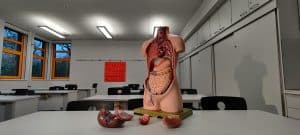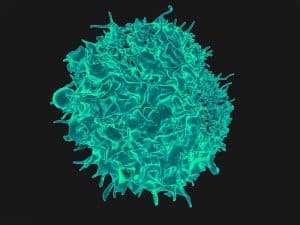
Immune system exhaustion associated with irritable bowel syndrome
pharmafile | June 21, 2017 | News story | Research and Development | IBS, irritable bowel syndrome, t cells
Researchers from the University of Adelaide have linked a specific type of irritable bowel syndrome with the exhaustion of the immune system. In particular, it was found that T cells were not active to standard levels when patients’ symptoms of irritable bowel syndrome (IBS) were particularly acute.
The small study, containing just 11 patients, followed the participants for a full year to measure blood samples and to ascertain when exactly the patients were suffering from symptoms most severely. The patients were living with diarrhoea-predominant IBS-D and the research found that there was a common link between patients in this sub-set of IBS, that of T-cell exhaustion.
It has previously been discovered that people who suffer from IBS often have particularly active immune systems. It is known that stress hormones and cortisol can, in the short-term, increase the activity of the immune system but, if there is constant releases of these hormones, in the long-term it can lead to lower immune response and activity.
Within the patients in the study, T cells were found to reproduce less frequently, be less responsive to stimulation and were secreting fewer mediators.
“For the first time, we’ve discovered that in patients with irritable bowel syndrome associated with diarrhoea, their T cells seem to be ‘out of puff’ or run down,” said Dr Patrick Hughes, Senior Lecturer with the Adelaide Medical School and leader of the study. “This type of response is often observed in chronic infections. This is an important discovery, particularly as it helps to further distinguish between the different types of irritable bowel syndrome. This may eventually help us to better understand how to diagnose and treat the disease”.
As mentioned by Hughes, the ability to differentiate between the body’s reactions in different types of IBS could lead to more targeted therapy rather a one-size-fits-all approach. At the moment, the most common treatments simply relieve symptoms – such as with laxatives or antimotility medicines.
Ben Hargreaves
Related Content

EnteroBiotix begins phase 2 trial of IBS treatment
EnteroBiotix has announced that it has dosed the first patient in its multi-centre, randomised, double-blind, …

Janssen’s ulcerative colitis medicine not recommended by NICE for use in adults
NICE has published draft guidance which does not recommend Stelara (ustekinumab) for treating moderately to …

Precision cancer treatment for dogs moves towards human testing
Scientists at the University of Missouri have developed a patient specific, precision medicine treatment for …








